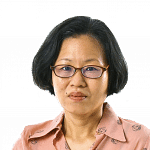Leadership succession was planned as a small section in this year's National Day Rally speech, but the issue assumed added significance when Prime Minister Lee Hsien Loong unexpectedly took ill while delivering the annual address.
He had been speaking for just over two hours when he felt unwell and was escorted off the stage at ITE College Central.
The medical team on site attended to him and assessed his condition to be not serious.
Mr Lee resumed speaking after a break of over an hour - the audience welcomed him back with a standing ovation - and he finished just before 11pm.
Earlier, when addressing the question of how Singapore can secure its place in the world, he mentioned the need for a small country to have a network of friends, and said "that is why I have been busy with foreign trips this year".
Deputy Prime Minister Tharman Shanmugaratnam later cited Mr Lee's "very tough schedule" as a possible factor in his feeling faint after prolonged standing.
At the Rally, the most important political speech of the year, Mr Lee chose to grapple with a number of difficult issues. The speech was short on feel-good human interest stories and announcements of fresh government largesse - a mainstay of many recent speeches.
The focus was instead on giving a realistic assessment of the threats and challenges facing Singapore, from economic disruption to terrorism to disputes in the region over territory and sea lanes.
But what the speech was not short on was hope, for it summed up Singapore's determination to do what it must to meet and overcome divisive and disruptive forces so as to remain a peaceful, pluralist society.
One aspect that stood out was how Mr Lee broached the twin sensitive issues of race and religion.
He called out religious practices which are exclusivist in nature and cause believers to live apart from those who do not share their faith.
Foreign preachers, whether Christian, Hindu or Muslim, who fail to understand the local context and who preach such exclusivist practices and doctrines, have been banned from entering Singapore, he said.
"Ours is a multiracial society. There has to be give and take. Each community has to engage and understand each other, and not segregate itself from other communities. We have to respect one another's religions; we cannot treat other groups as infidels," he said, warning that "if religious groups take an exclusivist approach, and discourage interaction and contact with others, we will deepen our fault lines".
Interactions and ties between people of different races are all the more important today in the light of the terrorist threat, for a successful attack - especially if carried out by a Singaporean - would surely place society under "enormous strain".
Turning to race, Mr Lee stressed the need for the Chinese, the majority race here, to make accommodation for members of the minority races in relation to the elected presidency, for the larger good of national unity.
The Constitution will be changed to ensure someone from a minority race is elected president from time to time.
In his speech in Mandarin, Mr Lee appealed to his listeners' sense of history and reminded them of the principles on which Singapore was built.
"Multiculturalism is our founding ideal, the reason why we became independent and the basis on which we built Singapore," he said.
The social harmony that Singapore enjoys today, he added, is "the result of the pioneer generation, especially the strong commitment from the Chinese community. They worked with the Government to build the foundations of a multiracial and harmonious society".
Neither tolerance nor accommodation of minorities are matters that come naturally to societies. If left to evolve on their own, the result could well be the very opposite.
In holding the line on what is expected of citizens of a pluralist society, Mr Lee is thus doing the right thing.
No doubt, some will criticise him but, after a strong win at the polls last year, he can afford to expend some political capital on these efforts.
The work of building a multiracial society is never done for a country's laws and institutions have to constantly evolve in response to changing circumstances.
Perhaps that is why Mr Lee chose to end his speech on an unusual note, that of discontent - and not just ordinary, everyday discontent but "divine discontent".
That is what Mr Lee said he would ask for if God offered him three wishes for Singapore: "that we be blessed with a divine discontent - always dissatisfied with where we are, always driven to do better."
He shared this wish after explaining that someone posed the God question to him at a dialogue.
Discontent is a good way to end a Rally that was less about celebrating how far Singapore has come than about contemplating what more it needs to do, as it marks 51 years of independence, to secure its future.

